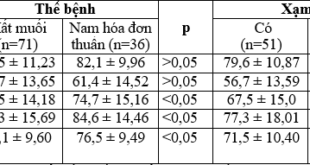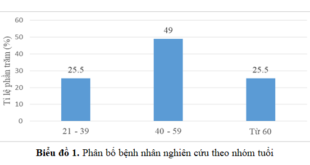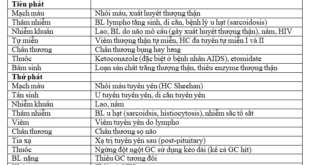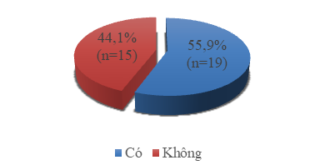ABSTRACT
DIAGNOSTIC VALUE OF MORNING PLASMA CORTISOL IN ADRENAL INSUFFICIENCY OF LONG-TERM GLUCOCORTICOID USERS
Background: Long-term glucocorticoid therapy can result in suppression of hypothalamic-pituitary-adrenal axis. Before glucocorticoid is stopped, secondary adrenal insufficiency should be assessed. Objective: To evaluate diagnostic utility of baseline plasma cortisol in diagnosing adrenal insufficiency of long-term glucocorticoid users.
Methods: Cross sectional study was performed at department of endocrinology, People Hospital 115, Ho Chi Minh City from 2/2009 to 4/2011. After long term glucocorticoid treatment, patients on low dose of glucocorticoid were recruited for measuring basal morning plasma cortisol and having short synacthen (ACTH) 250µg test performed. Adrenal insufficiency was defined as maximum plasma cortisol after synacthen equal or less than 20µg/dL. Results: 70 patients (64% female) had mean age of 36 ± 12 years. Adrenal insufficiency was confirmed in 51% (36 /70) of patients. Basal morning plasma cortisol was 8.0 ± 4.3µg/dL. There was a significant correlation between basal cortisol and maximum cortisol levels in synacthen test, r = 0.64 (95% CI: 0.47-0.76); p<0.0001. Morning plasma cortisol was used for diagnosis with area under curve of 0.78 (95% CI: 0.66-0.87; p<0.0001). At cut off point of 9µg/dL morning basal cortisol had sensitivity of 86%, specificity of 61%. Cortisol < 2µg/dL had specificity of 97%. Cortisol < 13µg/dL had sensitivity of 100% and specificity of 26%.
Conclusions: Morning basal cortisol has limited value in differentiating between adrenal insufficiency and normal adrenal function.
 Hội Nội Tiết – Đái Tháo Đường Miền Trung Việt Nam Hội Nội Tiết – Đái Tháo Đường Miền Trung Việt Nam
Hội Nội Tiết – Đái Tháo Đường Miền Trung Việt Nam Hội Nội Tiết – Đái Tháo Đường Miền Trung Việt Nam



